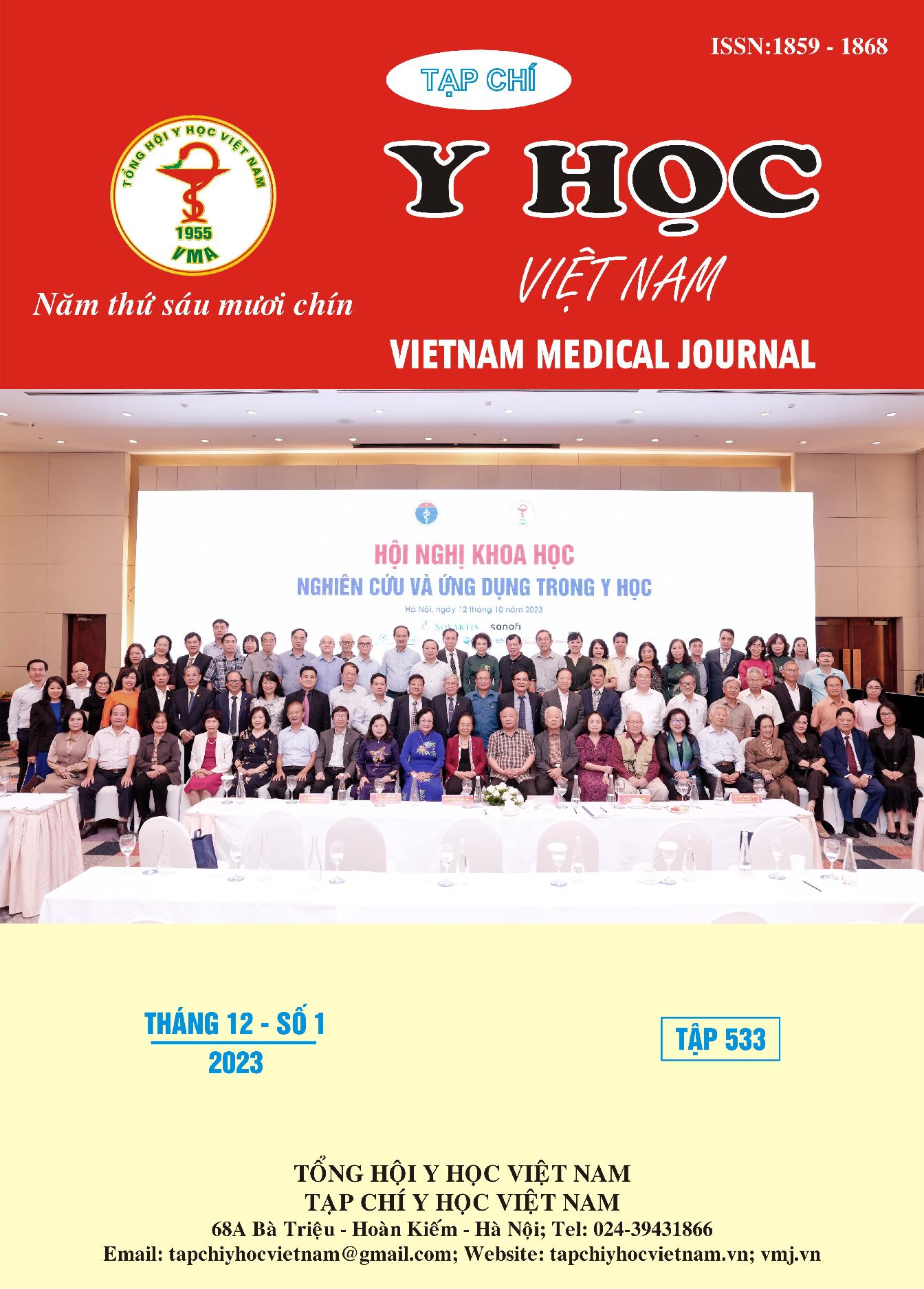SOME NON-MOTOR SYMPTOMS IN PEOPLE WITH STAGE OF PARKINSON'S DISEASE MEDIUM AND HEAVY
Main Article Content
Abstract
Parkinson's disease is a progressive degenerative neurological disorder. Besides movement disorders, non-motor disorders are very common and seriously affect the quality of life of people with Parkinson's disease. Proper attention to non-motor disorders brings optimal treatment results, especially in patients with moderate and severe disease. Objectives: To describe some non-motor disorders in patients with moderate and severe Parkinson's disease. Subjects and methods: A cross-sectional descriptive study on 93 patients with moderate and severe Parkinson's disease at the Department of Examination - Bach Mai Hospital from March 2022 to September 2023. Results: There were 41 female patients and 52 male patients with an average age of 65.11± 11.23 years old, mainly aged over 70 years old (accounting for 38,7%): cardiovascular symptoms appeared. popular with 67.7% in the study group; Among sleep disorders, excessive daytime sleepiness accounts for the highest rate (85%), restless legs syndrome is less common (30.1%); Most of the patients in the study showed anxiety (96.8%) and depression (83.9%); The rate of psychotic symptoms in the study group was relatively low (7.5% hallucinations, 8.6% delusions); The majority of patients present with memory disorders (89.25%) and difficulty concentrating (87.1%); The most common digestive disorder is constipation (82.8%); The most common urinary disorder is nocturia (65.6); The least common symptom was urinary urgency (11%); Decreased libido is quite common in Parkinson's disease (90.4%) Conclusion: besides movement disorders, non-motor disorders appear very often and severely, doctors need to pay more attention to the problem. this topic in clinical practice.
Article Details
Keywords
Parkinson's disease, non-motor disorders, moderate and severe stage
References
2. Martinez-Martin, P., International study on the psychometric attributes of the Non-Motor Symptoms Scale in Parkinson disease. Neurology, 2009. 73: p. 1584- 1591.
3. Hinnell, C., Nonmotor Versus Motor Symptoms: How Much Do They Matter to Health Status in Parkinson’s Disease? Movement Disorder, 2012. 27: p. 236-241.
4. Poewe, W., Non-motor symptoms in Parkinson's disease. European Journal of Neurology, 2008. 15: p. 14-20.
5. Swick, T.J., Parkinson’s Disease and Sleep/Wake Disturbances. Hindawi Publishing Corporation, 2012. 2012: p. 1-14.
6. Raggi et al, A., Impact of nonmotor symptoms on disability in patients with Parkinson's disease. International Jounal of Rehabilitation Reseach, 2011. 34: p. 316- 320.
7. Chaudhuri et al, K.R., The Nondeclaration of Nonmotor Symptoms of Parkinson’s Disease to Health Care Professionals: An International Study Using the Nonmotor Symptoms Questionnaire. Movement Disorder, 2010. 25(6): p. 704-709.
8. Kishnan et al, S., Do Nonmotor symptoms in Parkinson' s disease differ from normal aging? Movement Disorder, 2011. 26: p. 2110-2113.


